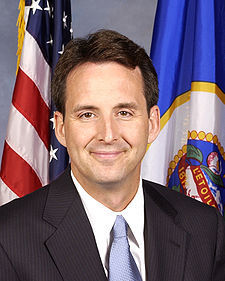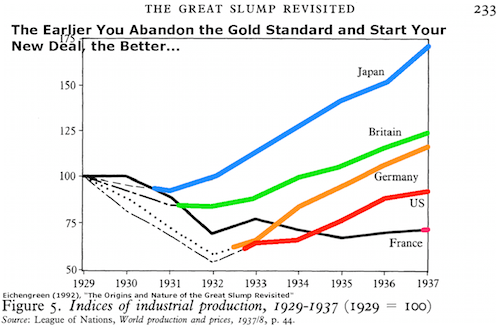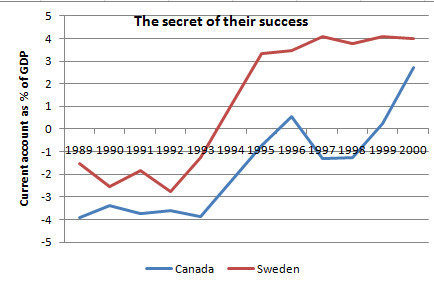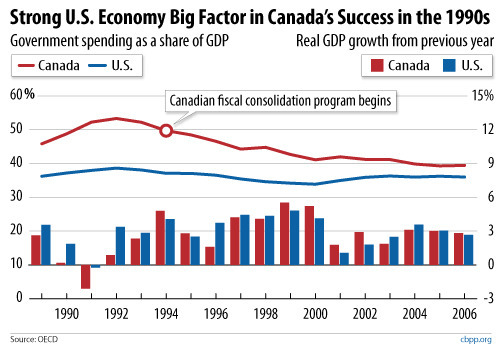Matthew Yglesias's Blog, page 2370
March 30, 2011
India Fact of the Day

Tata Indica 1
When you rent a car in India, the car comes with a driver, partly because their wages — as low as $2-3 a day — are negligible compared to the cost of the rental. I traveled a lot within India, so I met a lot of drivers.
I saw an episode of No Reservations once where Anthony Bourdain was eating some super-cheap street food and went off on some thing about how much better it was in India where you had these hand-prepared meals instead of Burger King. And for a western tourist, that does sound nice, just as it must be nice to rent a car that comes with a driver. But in both cases what you're looking at is low living standards in action. Average productivity in the US is much higher than average productivity in India, so wages are much higher in the US. But American drivers are no more productive than Indian ones, so chauffeurs are unaffordable here and affordable prepared food needs to economize on labor with fast food techniques.


Chart of the Day
Trade Matters, "Free Trade" Less So

I agree with Chris Blattman that Dani Rodrik's The Globalization Paradox has gotten surprisingly little attention. I just assumed this book was going to be a huge deal when I reviewed it and in retrospect wish I'd been more enthusiastic. Let me quote from Steven Pearlstein's review to help tease out a really good Rodrik-ian idea:
The irony, Rodrik notes, is that the countries that experienced the greatest growth during the heyday of the "Washington consensus" were Japan, China, South Korea and India, which never embraced it. For years, they had nurtured, protected and subsidized key industries before subjecting them to foreign competition. They had closely controlled the allocation of capital and the flow of capital across their borders. And they flagrantly manipulated their currency and maintained formal and informal barriers to imports. Does anyone, he asks, really think that these countries would be better off today if they had played the game, instead, by the Washington rules?
The point here is that while trade has been hugely important to Asian development success stories, that hasn't meant "free trade" it's often meant export-promotion strategies. One important reason trade matters is that in the tradable sector it's easier to compare quality. Since Hyundai tries to sell cars to Americans and Toyota and Ford also try to sell cars to Americans, you actually tell via price and market share whether Hyundai is succeeding in making cars that people like. In non-tradable sectors, by contrast, it's difficult to have quality benchmarks and even know whether or not you're moving up the ladder.
One difficulty here, though, is that if everyone tries to do this simultaneously it's not clear where it gets you. South Korea can protect its domestic auto market to build up an "infant industry" that turns to exporting. But if everyone's protecting their domestic auto market, then it's a wash and you just have a world that's producing too many cars.


Sandra Lee, Feminist Icon

Sandra Lee, host of the Food Networks's Semi-Home Cooking, is sort of history's greatest monster. But as Sarah Laskow says, she's also in many ways a as New York Governor Andrew Cuomo's significant other:
In the real world, women like Lee who have very, very successful careers of their own do not have to give them up when their husbands or partners happen to land an important job. In the political world, that's not true.
Lee is the first partner of a high-profile politician to opt out of her assigned role altogether, that I know of. She can do this partially because she is legitimately more famous than Cuomo. She's made multiple appearances on The Today Show and The View; her own show, according to The Food Network, has millions of viewers; her cookbooks have made The New York Times' bestseller list. She gets more Google hits than Cuomo. Acting as New York's official hostess would actually be a waste of her time (and probably a violation of some sort of in-kind gift law, given the price she would be able to charge to provide similar services to anyone else). But if everything was right with the world, anyone whose romantic partner was elected to political office would have the freedom to decide they'd rather spend their time in other ways.
I would add that part of what makes this work is that Lee is both super-successful and also has a kind of weird job. If she were hospital administrator like Michelle Obama or a lawyer like Hillary Clinton, then her career might be fraught with potential conflicts of interest. But as an entertainer and TV personality, what she does has nothing to do with New York State government, which is convenient. Ultimately, I think only the election of more high-profile women to office will really shift norms in this area. People don't seem to expect that Joachim Sauer will act as national hostess for Germany, which should change expectations for the wife of the country's next male Chancellor.


Leonhardt on Monetary Policy
The Fed needs to do more.
Glad to see this getting more attention. What it could really use is some attention from national politicians.


Michelle Rhee Digging Deeper

I think virtually 100 percent of the policy conclusions that people have been drawing about standardized testing irregularities out of DC are wrong. What I conclude from this is that precisely because regular testing is appropriate and important, we need to try somewhat harder to police cheating on the tests. But instead of saying something sensible like that, Michelle Rhee seems to have decided that the fact that she has enemies absolves her of responsibility:
"It isn't surprising," Rhee said in a statement Monday, "that the enemies of school reform once again are trying to argue that the Earth is flat and that there is no way test scores could have improved … unless someone cheated."
USA TODAY's investigation into test scores "is an insult to the dedicated teachers and schoolchildren who worked hard to improve their academic achievement levels," Rhee said.
It's really not surprising that they're arguing this. And yet the evidence with regard to this school is that there was, in fact, cheating. And for all the same reasons that it's stupid to say we shouldn't test kids and use test results to guide policy, it's stupid to say we should blind ourselves to cheating. As I've said before, it seems to me that the dialectical dynamic here just points to un-funding the K-12 education system. On the one hand we have "reformers" who don't really care if tests are accurate as long as "reformers" are in charge of school systems. Then on the other hand we have people who've decided that the one true progressive pro-teacher position is to insist that schooling doesn't matter and educational attainment can't be measured.
Meanwhile, I think a lot of progressives wringing their hands about the limited ability of a standardized test to capture the full range of learning experiences sort of have their heads in the sand about the actual state of learning in America. This is the definition of "basic" reading competence for NAEP Grade 8:
Eighth-grade students performing at the Basic level should be able to locate information; identify statements of main idea, theme, or author's purpose; and make simple inferences from texts. They should be able to interpret the meaning of a word as it is used in the text. Students performing at this level should also be able to state judgments and give some support about content and presentation of content.
Nationwide, 26 percent of 8th grader are below this level. They can't identify statements of main idea, theme, or author's purpose; and make simple inferences from texts. 26 percent! Among boys, that rises to 30 percent. For black students, it's 44 percent. For students eligible for school lunches it's 40 percent. This kind of basic reading competency is definitely something we can measure on standardized tests. And it's important. The large minority of students who don't attain this level of reading proficiency in 8th grade aren't going to be able to engage in meaningful learning in high school. They'll be easy targets for financial ripoffs. They won't have access to political information and won't be able to effectively monitor the behavior of their elected representatives.


Declining Education Standards in Wisconsin
DC Pundette offered a link to this letter (PDF) from the Dane County GOP whose text I will reproduce in its entirety, mostly because it's hilarious and reads like a sixth grader doing his book report:
The Republican Party of Dane County sent out a press release on March 29th criticizing Judge Maryann Sumi for holding up the publication of Governor Scott Walker's collective bargaining reform bill. Upon further reflection we'd like to apologize for not understanding her point of view.
Sure, Governor Walker's bill is unquestionably constitutional, increases worker's rights and helps local government balance budgets without having to fire public workers. The Wisconsin state legislature consulted with their non-partisan parliamentarian to make sure that the passage of the bill followed the rules of the Senate and Assembly. But this isn't about the law, is it?
The Republican Party of Dane County recognizes that Judge Sumi is a leftist living in Dane County. Her friends are leftists living in Dane County. Her son is a left wing activist in Dane County. She goes to cocktail parties held by leftists in Dane County. She shops at organic gourmet food shops run by leftists living in Dane County. If she were to enforce the law of Wisconsin and do what was in the best interest of the people of Wisconsin, she'd be exiled from her lifestyle. She'd lose her friends!
The leadership of the Republican Party of Dane County have all made the choice to stand against the Dane County elite. We accept that Left feels righteous vandalizing our homes and keying our cars. It's only fair. We disagree based upon logic and principle. That is intolerable! We prioritize the Constitution and the well being of the people of Wisconsin over foie gras at cocktail parties. That's the choice we made. We respect Judge Sumi's decision to live her life with the rich diversity that liberals cherish.
Bad writing aside, there's something very strange about how conservatives like entrepreneurs and small businessmen unless their entrepreneurial business is in the gourmet food sector. The CEO of Whole Foods, by contrast, is actually a rabid right-winger. And why shouldn't he be? He's a rich successful businessman who doesn't want to pay taxes! But identity politics conquers all, and "foie gras" is a French phrase, so obviously conservatives are against it.


Is Debbie Stabenow Vulnerable?

Rachel Weiner profiles the Michigan GOP's search for a challenger to Senator Debbie Stabenow:
The fundamental question is just how much that political environment will impact Stabenow. After winning in 2000 with just 49 percent, Stabenow cruised to a 16-point win six years later against Oakland County Sheriff Mike Bouchard.
While polling suggests Stabenow's numbers are in dangerous territory, running with President Obama on the top of the ticket should help Stabenow drive African-American turnout. (No Republican presidential candidate has carried Michigan since George H.W. Bush in 1988.) Stabenow also has $2 million in the bank as of the end of 2010, putting her towards the top of the pack of vulnerable senators in cash.
"I don't think 2012 is going to be 2010," said Bill Ballenger, a pundit and former Republican lawmaker.
It seems to me that you have two different cases here. One is one in which the economy is doing so poorly that Barack Obama loses a state where he got 57 percent of the vote in 2008. In a scenario like that, clearly Stabenow is in big trouble if faced with a reasonable opponent. Another is a scenario in which Obama joins Bill Clinton, Al Gore, and John Kerry in carrying Michigan. There it's hard to see why Stabenow could possibly lose since there's precious little sign coming out of recent state-level politics that the Michigan GOP is interested in nominating moderates. They seem to have (not necessarily wrongly) decided to go with a strategy of nominating hard-core conservatives in a moderately liberal state, losing most of the time, but achieving dramatic right-wing policy advances when they do win.


Pawlenty Denounces "Fiat Money"

That former Minnesota Governor Tim Pawlenty is an ignorant monetary crank would, by itself, be an interesting story. But in light of his efforts to position himself as the generic Republican par excellence it's even more distressing to learn that he seems to see this as a new consensus view among conservative activists:
The likely presidential candidate said the government, under President Obama, has devalued the dollar by injecting "fiat money" into the economy in an attempt to boost it — a plan he said will be damaging in the long-run. [...] The Obama administration has pointed to positive signs, such as Feburary's strong job report, as evidence the economy is now steadily growing. Democrats have also argued the report shows that steep spending cuts proposed by Republicans could stunt further job growth.
Several points in response. One, it might interest Pawlenty that the United States of America has been on "fiat money" since at least 1933. Two, it might interest Pawlenty that when the Franklin Delano Roosevelt administration took the dollar off the gold standard he was roundly denounced by conservatives for debasing the currency. Three, it might interest Pawlenty that cross-nationally monetary debasement proved to be a highly effective strategy for increasing real output during the Great Depression:

Four, it might interest Pawlenty that of the industrialized countries that have best weathered the recession, three (Canada, Australia, Norway) are natural resource exporters and two (Israel and Sweden) were practitioners of unorthodox monetary policy.


Canada In the 1990s
Canada initiated a successful debt reduction program in the 1990s that involved spending cuts and economic growth. How's they do it? Well, their currency devalued so like Sweden they exported a lot:

And conveniently, they were located adjacent to the United States of America which grew rapidly during this period:

What's more, I think you could make a strong case that given Canada's situation a fiscal consolidation program was necessary to implement expansionary monetary policy. That's not the case for the United States today. Some people think we could conduct monetary stimulus regardless of fiscal policy and there's also a credible case that fiscal expansion is needed to make monetary stimulus work. But we're just not in the Canada situation where we need to cut the budget to facilitate interest rate cuts.


Matthew Yglesias's Blog
- Matthew Yglesias's profile
- 72 followers






